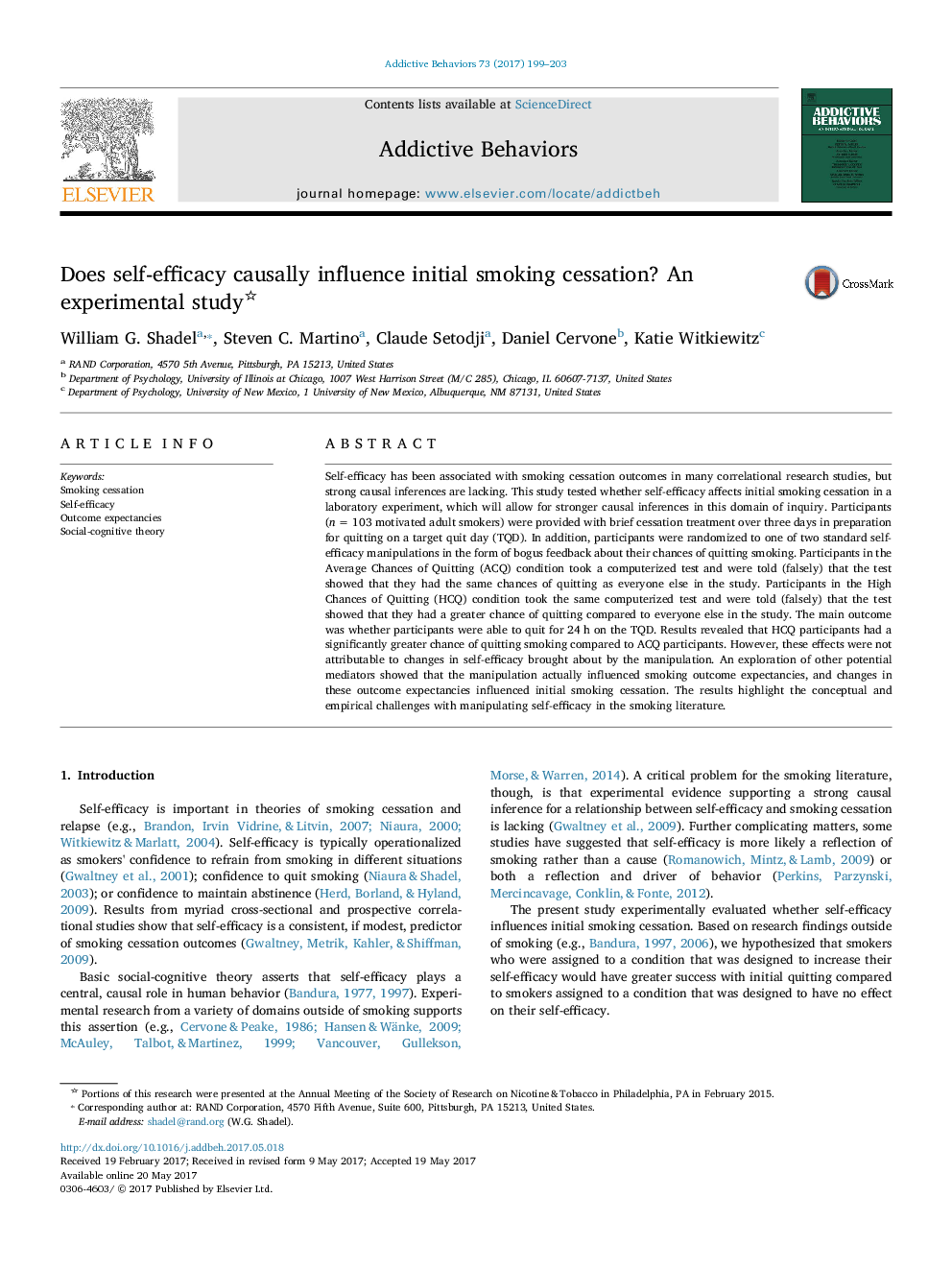ترجمه فارسی عنوان مقاله
آیا خودکارآمدی به علت تأثیر اولیه بر ترک سیگار تاثیر می گذارد؟ یک مطالعه تجربی
عنوان انگلیسی
Does self-efficacy causally influence initial smoking cessation? An experimental study
| کد مقاله | سال انتشار | تعداد صفحات مقاله انگلیسی |
|---|---|---|
| 112543 | 2017 | 5 صفحه PDF |
منبع

Publisher : Elsevier - Science Direct (الزویر - ساینس دایرکت)
Journal : Addictive Behaviors, Volume 73, October 2017, Pages 199-203
ترجمه کلمات کلیدی
ترک سیگار، خود کارآمدی، انتظار می رود نتیجه، نظریه اجتماعی شناختی،
کلمات کلیدی انگلیسی
Smoking cessation; Self-efficacy; Outcome expectancies; Social-cognitive theory;

